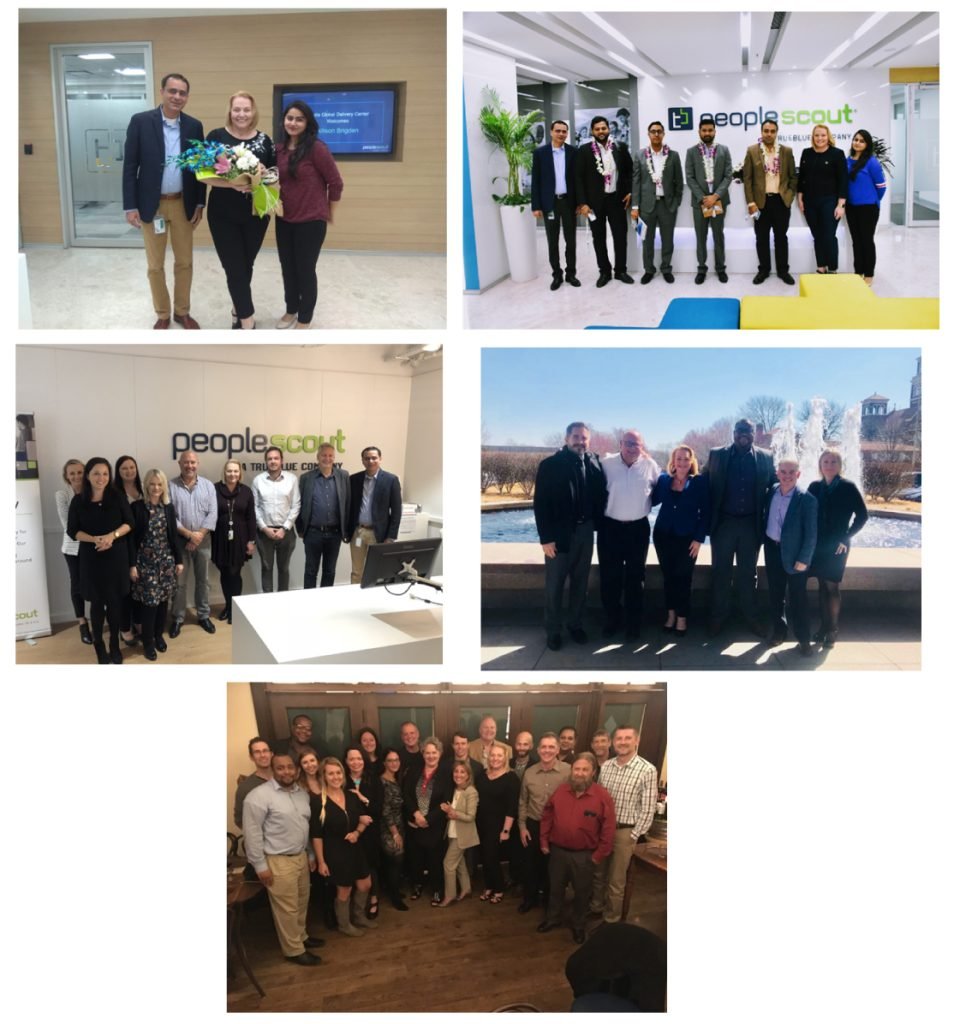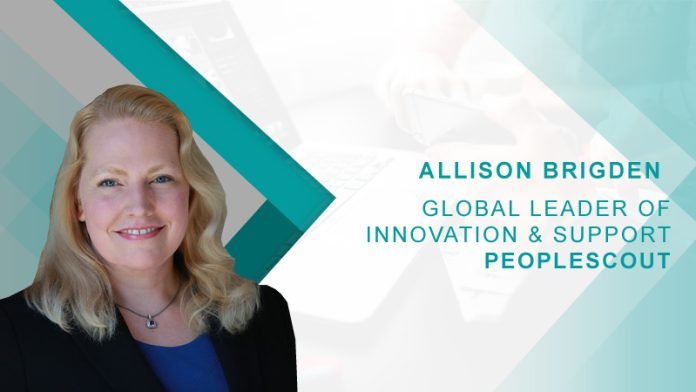1. Tell us about your role in PeopleScout?
I am the Global Leader of Innovation and Support at PeopleScout and I have been with the company for more than 20 years. Initially, my core responsibilities centered on implementing and managing complex RPO engagements and ensuring our clients received world-class service at every stage of the process. Currently, my role has shifted to overseeing PeopleScout’s Affinixtm technology platform.
It has been really exciting to bring cutting-edge technology solutions to our clients. I believe the experience and knowledge I gained working on RPO engagements has helped me merge the needs of HR stakeholders with the new and exciting realities emerging technologies are bringing forth in the marketplace.
2. Can you tell us about your journey into this market?
Our journey into the talent technology market began with the candidate. At PeopleScout, we believe that to provide the best solutions and services to our clients, we need to understand exactly what job seekers are looking for and formulate solutions based around those needs.
When we surveyed the candidate landscape, we saw a huge shift towards a more personalized and digital experience. Candidates wanted a more consumer-centric job hunting process, similar to their interactions while shopping online. We also found that candidates expect a more mobile-friendly method of searching for and interacting with employers. These findings make sense as new digitally native generations are entering the workforce.
We saw a great opportunity to modernize the recruiting process for both our clients and job seekers by developing Affinix, an AI-enabled, mobile-first, cloud-based platform that creates a consumer-like candidate experience that streamlines the recruiting process.
3. How do you think technology is changing the HR Sector?
Technology has revolutionized HR in many ways. From reviewing resumes to scheduling interviews, technology has better enabled HR teams to improve and streamline the recruiting process. AI-backed technologies are helping HR teams automate repetitive, low-value administrative tasks. This provides HR personnel the time to focus on more productive and strategic projects that require an interpersonal or human approach.
In addition to improving and automating tasks, technology can also be deployed to boost employee engagement and retention by identifying employees who may resign soon. By creating early warning alerts for HR teams, interventions and engagement strategies aimed at improving employee retention can be arranged before a highly valued employee walks out the door.
4. How has application of AI empowered the talent acquisition process?
Analytics and machine learning are playing a huge role in improving recruiting outcomes and helping talent acquisition professionals better understand top talent behaviors and predict factors such as cultural fit, willingness to change companies and future tenure potential. Over time, this improves hiring speed and accuracy by more quickly identifying, screening and assessing top talent.
Also, sourcing tools can help organizations extend their talent pool by uncovering hard-to-find talent and passive candidates who are not currently seeking a new job, but may consider moving on if the right opportunity is presented. Lastly, chatbots are enhancing a recruiter’s ability to engage with candidates by providing a smart and responsive means of communication between potential employers and candidates looking for more information on the hiring process.
5. Why do you think recruitment marketing is growing as a permanent part of talent acquisition process?
With unemployment at historic lows, the balance of power in the talent market has shifted in recent years from the employer to the candidate. As a result, organizations need to find an edge to attract talent. This is where recruitment marketing comes in. Before today’s job candidate applies to an organization, they do their homework and gather information from many touchpoints including news outlets, social media platforms and job boards like LinkedIn, Glassdoor and Indeed.
This makes having a strong recruitment marketing program as a part of your talent acquisition strategy more important than ever. Recruitment marketing can help boost an organization’s employer brand at all candidate touchpoints by leveraging a diverse range of tactics to engage talent in the right place and the right time.
6. How has data-driven approach helped in better talent recruitment?
One of the most exciting and promising uses of data in recruiting is predictive analytics. Predictive analytics is a type of data analytics that uses data to find patterns and then uses those models to attempt to predict the future. Predictive analytics can’t tell practitioners what will happen, but it shows what is likely to happen based on past trends. It’s as close as recruiters can get to predicting the future.
The ability to make these predictions can help shorten the recruiting process while making stronger hires. In a competitive talent market, this allows employers to identify the top talent for a particular role and make an offer to the best candidates faster than the competition. For employers, this results in improvements in time-to-hire and quality-of-hire, and for candidates, it builds a better experience, leaving a positive impression that will factor into their decision to accept an offer.
7. How do you differentiate your talent acquisition solutions from others?
Our Affinix technology puts the candidate experience as the paramount concern, giving our clients a competitive edge to attract the best candidates first. Our integrated platform brings best of breed technologies together in one solution and allows us to continue to evolve the technology quarter-over-quarter to stay relevant in the future.
8. What advice would like to give to the upcoming HRTech Start Ups?
Focus on how your technology solution aligns to the client’s business drivers so that you can clearly articulate success with a return on investment for the client.
9. How do you prepare for an AI-centric World?
Simply by embracing the new and innovative technologies shaping our world. It can be difficult and at times frightening to contemplate how technology is evolving and understanding your place in it all. However, if you look at the advancements in AI and can spot the opportunities presented to improve processes and outcomes for your organization, you will find that the future isn’t to be feared, rather it should be welcomed with open arms.
10. We have heard that you have a very joyful work culture, we won’t mind having a look at some of the pictures?


Allison Brigden Global Leader of Innovation & Support, PeopleScout
Allison has been with PeopleScout since 1995 and has served in roles related to implementing and managing complex RPO programs as well as operations and technology. In her current role, Allison focuses on leveraging technology to elevate the talent strategy and client success through Affinix, PeopleScout’s proprietary talent technology platform. Allison leads an Affinix Client Success Team and our strategic technology partnerships. The Affinix Client Success Team is focused on understanding our clients’ objectives with Affinix and creating positive outcomes. She also possesses a deep commitment to corporate social responsibility, with an emphasis on military veteran advocacy. Allison holds a Bachelor’s degree from the University of Utah.













